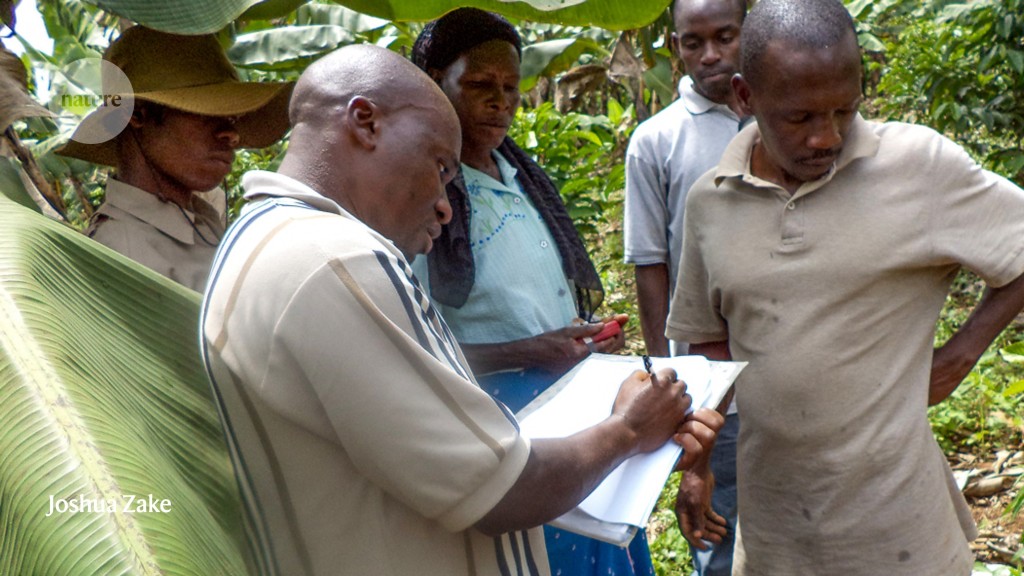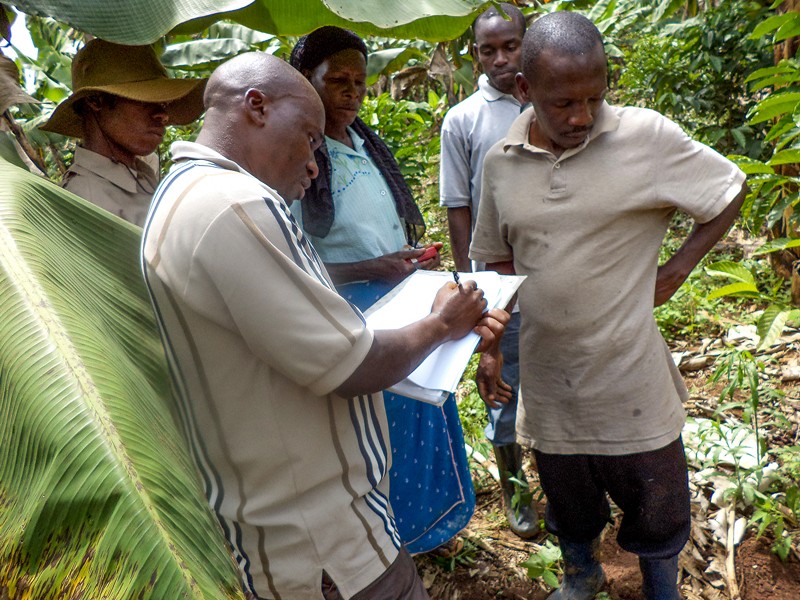Until last December, Joshua Zake was executive director at Environmental Alert (EA), a Ugandan non-governmental organization based in Kampala. Its mission is to protect the environment and educate farmers in sustainable practices. He joined EA as an intern in 2002, after graduating with a bachelor’s degree in agriculture from Makerere University in Kampala. In 2008, he earned a master’s degree in soil science from Makerere, and in 2015 he finished a PhD in environment and natural resources at the University of Natural Resources and Life Sciences in Vienna.
He left EA in 2021 and now manages his own farm near Kayabwe, where he keeps goats and bees and grows coffee and eucalyptus, as well as indigenous trees and grasses. He also runs a consultancy there, through which he demonstrates how integrated-farming practices can promote climate-change adaptation, sustainable farming, and food and income security.
What work did you do at Environmental Alert and how did you rise from intern to executive director?
When my internship ended in 2003, I was promoted to programme assistant, and then senior programme assistant, working with small-scale farmers in the Central Region to improve their soil fertility using local animal manure. A few years after completing my master’s degree, I applied to several universities in Europe and North America with ideas for research that could address gaps in information on sustainable farming and help Ugandan farmers struggling with drought.
In 2011, I was accepted as a postgraduate student at the University of Natural Resources and Life Sciences in Vienna. From my PhD work, I brought back the idea of agroforestry in which farmers could grow coffee and bananas, along with trees such as eucalyptus, on the same farm. I advise Ugandan farmers on how to plant the right trees at the right time, and how to use organic fertilizers and mulching to allow their crops to flourish.
Shortly after I returned from Austria in 2015, I was promoted to deputy executive director at EA — and the following year I became the executive director.
Your research and consulting specialize in integrated farming — what does that mean?
Integrated farming works on a self-sustaining, circular model. My own 3.2-hectare farm, for instance, has eucalyptus trees integrated with coffee, indigenous trees and grasses, such as Musizi trees (Maesopsis eminii), Mutuba fig trees (Ficus natalensis) and calliandra and Napier grasses (Calliandra calothyrsus and Cenchrus purpureus). For the trees, my spacing is 3 metres by 3 metres (3 metres between trees and 3 metres between rows of trees). The spacing allows the trees to absorb nutrients effectively, and has improved the farms’ productivity and environmental sustainability.
I have goats that eat the weeds and provide the manure. I also practise apiculture, and the bees pollinate the coffee plants. The farm, which I’ve had since 2010, is surrounded by indigenous mvule, or African teak trees (Milicia excelsa). Some of the crops feed deep in the ground, while others get nutrients from the topsoil. Also, planting coffee and bananas together creates micro-environments that limit pests and diseases. The coffee and eucalyptus trees are high-value commercial crops, whereas the indigenous trees conserve wildlife habitat and act as carbon sinks.
You did your bachelor’s and master’s studies here in Uganda but got your PhD in Austria. What differences did you notice in the two educational systems?
In Vienna, teaching was about empowering students. You are not only there to receive knowledge from your professor, but you are also an active participant in your studies: you are the lead on what to read and research. In the PhD programme, you are expected to take charge with minimum guidance from your supervisor. Access to information in Austria was very quick, supported by the university’s subscriptions to leading journals. My PhD was the first step for me to contribute to sustainable-farming research in Uganda.
How can Uganda improve scientific training at its universities — especially at the PhD level?
We can talk about improvements after diagnosing the current challenges at universities such as Makerere, which include problems faced by students and supervisors, and at facilities. First, doctoral students need funding for the whole of their PhD programmes, so as to have complete focus on their education. Universities must also allocate resources and subscribe to top journals. As an external PhD-thesis examiner, I have noticed that students use literature reviews that are 20 years out of date because they lack access to recent publications.
University curricula need to be responsive to these challenges. In agriculture, for example, students should be taught about droughts because Uganda is experiencing more prolonged ones owing to climate change. Universities must also retain the best talent to train future generations — whether that means recruiting professionals with practical experience or retaining excellent professors on contracts after they reach the retirement age of 65.
This interview has been edited for length and clarity.






More News
I study artefacts left in prehistoric caves
How artificial intelligence is helping to identify global inequalities
Tackling ‘wicked’ problems calls for engineers with social responsibility